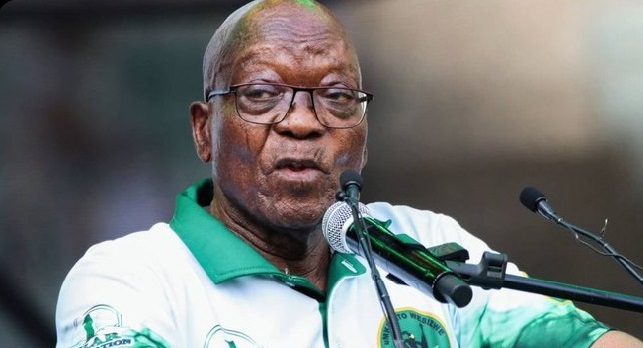In a compelling analysis, political commentator Mazibuko Kanyiso Jara argues that South Africa’s struggle with corruption extends far beyond the presidency of Jacob Zuma. While Zuma’s tenure is often highlighted as a defining period of political decay, Jara contends that corruption is deeply ingrained in South Africa’s political system, surpassing the influence of any single individual or administration.
Jara asserts that the state capture crisis under Zuma’s leadership was not an isolated phenomenon but rather the culmination of systemic corruption that has plagued the country for decades. “The truth is that corruption and state capture did not start with Zuma, nor did it end with his departure from office. It is a systemic issue that extends far beyond one individual,” he writes.
While acknowledging the unprecedented scale of looting during the Zuma era, Jara traces the roots of corruption back to South Africa’s early democratic years. He notes that under presidents Nelson Mandela and Thabo Mbeki, corrupt practices were often overlooked or normalized within the broader political culture.
The Zondo Commission report revealed the extent of the collusion between business elites, state-owned enterprises, and political leaders in siphoning public funds. Jara highlights that many of the individuals implicated in the scandal were not merely Zuma loyalists but longstanding figures entrenched in South Africa’s political and economic networks.
“There was a network of corruption that flourished under the guise of political patronage. Many people benefitted from the system, and when Zuma came into power, they simply found more opportunities to exploit state resources,” Jara explains.
He also critiques the complicity of South Africa’s political and business elite, particularly within the African National Congress (ANC), for perpetuating a culture of corruption. Jara argues that meaningful change requires dismantling this systemic rot rather than scapegoating individuals.
“The problem is not one person; it is a broken system where power and wealth are concentrated in the hands of a few. This system has been in place for decades, and it continues to thrive,” Jara asserts.
To combat corruption effectively, Jara calls for a multi-faceted approach. This includes strengthening governance frameworks, increasing transparency in public procurement, and fostering political reforms that ensure leaders remain accountable.
“Until we address the systems that allow corruption to flourish, we will continue to see similar scandals, no matter who is in power,” he warns.
Mazibuko Kanyiso Jara’s insights serve as a sobering reminder that South Africa’s fight against corruption is far from over. While Zuma’s presidency may symbolize a peak in state capture, the issue is far deeper and more systemic. For South Africa to break free from the cycle of corruption, it must overhaul its political culture and governance structures while holding both individuals and institutions accountable.






















